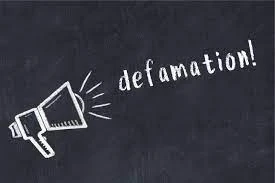Defamation is a legal term used to describe false statements or communications that harm a person's reputation, leading to potential damage to their character, personal life, or professional standing. When someone believes they have been defamed, they have the right to seek redress through a defamation trial. A defamation trial is a legal proceeding where the alleged victim, known as the plaintiff, sues the person making the false statements, known as the defendant, seeking compensation for the harm caused. This article delves into the intricacies of a defamation trial, examining the key elements, procedures, and possible outcomes.
The Elements of Defamation
For a defamation claim to be successful in a court of law, certain essential elements must be met:
1. False Statement: The plaintiff must prove that the defendant made a false statement about them. The statement could be spoken (slander) or written/published (libel). The falsity of the statement is typically assessed based on the facts presented during the trial.
2. Publication: The false statement must have been communicated to a third party, exposing the plaintiff to potential harm to their reputation. The concept of "publication" extends to a wide range of audiences, including online platforms and social media.
3. Identification: The false statement must be about the plaintiff, or it must be understood by others that the statement refers to the plaintiff, even if their name is not explicitly mentioned.
4. Harm: The plaintiff must demonstrate that they suffered actual harm as a result of the false statement. This harm can be reputational damage, financial losses, emotional distress, or a combination of these factors.
The Defamation Trial Process
1. Pre-trial Procedures: The plaintiff initiates the lawsuit by filing a complaint against the defendant, outlining the alleged defamatory statements and the damages incurred. The defendant then responds with an answer, either admitting or denying the allegations. Pre-trial procedures, such as discovery, may take place to gather evidence, identify witnesses, and evaluate the strength of each party's case.
2. Jury Selection: In some jurisdictions, defamation trials may involve a jury. During jury selection, both the plaintiff and the defendant, along with their attorneys, participate in the process of choosing impartial jurors who will hear the case.
3. Opening Statements: At the trial's commencement, both sides present their opening statements. The plaintiff's attorney outlines the evidence they will present, while the defendant's attorney does the same.
4. Presentation of Evidence: The trial moves forward with the presentation of evidence. Witnesses are called to testify, documents are introduced, and any relevant materials are examined. Both parties may also present expert testimony, particularly in cases involving complex subject matters.
5. Cross-Examination: After direct examination, the opposing party has the opportunity to cross-examine each witness, challenging their credibility and the accuracy of their statements.
6. Closing Arguments: Once all evidence has been presented and witnesses have testified, both attorneys deliver their closing arguments, summarizing the evidence and persuading the jury or judge to rule in their favor.
7. Verdict: In jury trials, the jury deliberates in a private room to reach a verdict. In non-jury trials, the judge makes the decision. To find the defendant liable for defamation, the jury or judge must agree that the elements of defamation have been proven beyond a reasonable doubt.
Possible Outcomes of a Defamation Trial
1. Liability and Damages: If the plaintiff succeeds in proving their case, the defendant may be found liable for defamation and ordered to pay compensatory damages to the plaintiff. These damages aim to compensate the plaintiff for the harm they suffered due to the false statements.
2. Defenses: The defendant may assert certain defenses to defamation, such as truth, opinion, fair comment, and qualified privilege. If the defense successfully proves any of these, they may avoid liability for defamation.
3. Appeals: Either party may appeal the trial's outcome if they believe legal errors were made during the proceedings. The appellate court will review the case to determine if a new trial is necessary or if the verdict should be upheld.
Conclusion
Defamation trials play a crucial role in upholding the rights of individuals to protect their reputation and seek recourse for the harm caused by false statements. These trials involve a comprehensive examination of evidence, legal arguments, and a determination of the truth. Understanding the elements, procedures, and potential outcomes of a defamation trial empowers individuals to navigate the complexities of the legal system effectively.


